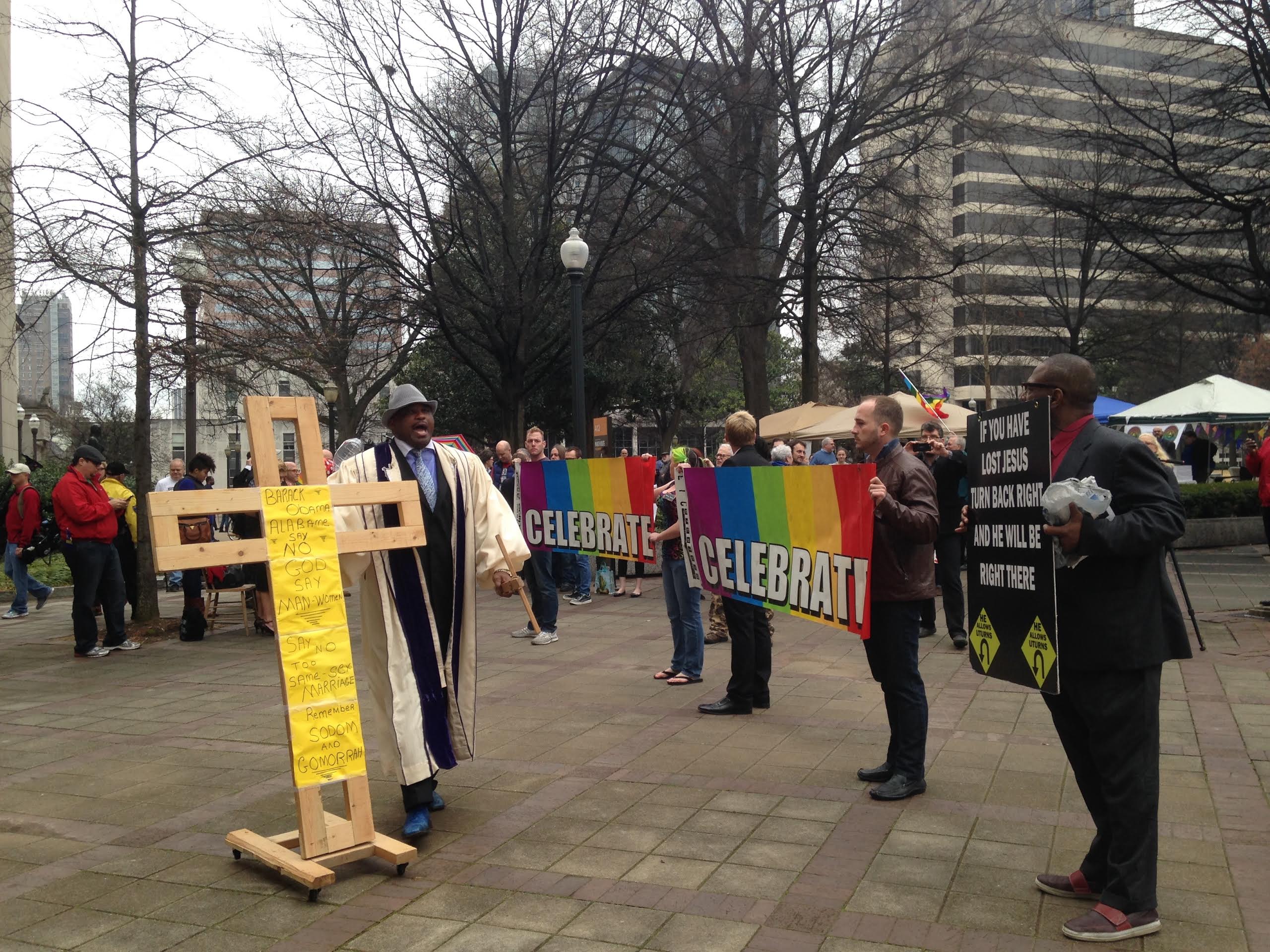Mark Linn – Staff Writer
quiaego@uab.edu
A scene from the Jefferson County Courthouse on Feb. 9, when the long-standing ban on same sex marriage was temporarily lifted for three weeks (Photo by Casey Marley).
It has been more than two months since Alabama became the 37th state to legalize same-sex marriage, however recent actions by the state Supreme Court have put marriage rights back into question.
On March 3, the Alabama Supreme Court issued an order to state probate judges to stop issuing marriage licenses to same-sex couples. In a 7-1 decision, the court ruled that Alabama’s ban on same-sex marriage was constitutional, and that probate judges “…have a ministerial duty to follow Alabama law limiting marriage to a union of one man and one woman,” according to the court ordered writ of mandamus.
Alabama Chief Justice Roy Moore, who has been a vocal opponent of same-sex marriage, recused himself from the case.
The decision of the state Supreme Court is in direct contradiction of the ruling made by U.S. District Court Judge Callie Granade, who struck down Alabama’s ban on same-sex marriages and civil unions, which had been included in Alabama’s constitution in a 81 percent voter-approved amendment in 2007. It also goes against her later ruling that the Mobile County Probate Judge must issue marriage licenses to same-sex couples.
This has left Judge Don Davis, the Mobile County Probate Judge, caught between two conflicting rulings from a federal judge and the state Supreme Court. According to AL.com, Davis and his attorneys have sought clarification on the issue; however, on March 10, the state Supreme Court ruled that their previous order halting same-sex marriages applies to Davis as well.
And on March 16, Granade refused a request by Davis to put a hold on her previous decision – leaving him in his original position. As a result of this, the Mobile County Probate Office has granted no licenses to any couples since the March 4 ruling by the Alabama Supreme Court, which is legal according to Alabama law that states that Probate Judges “may issue” marriage licenses—but they are not required.
As the legal battles continue and the country awaits a definitive decision from the federal Supreme Court on the issue of same-sex marriage—which is expected sometime in June—advocates from both sides of the issue continue to make their case in the court of public opinion.
On March 23, Moore was the keynote speaker at a “Defense of Texas Marriage Amendment Rally” hosted on the front steps of the Texas Capitol building. The event was attended by more than 100 Texas legislators, including the Lieutenant Governor.
“Nothing in the Constitution of the United States, nothing in the laws or precedence of the federal courts give federal courts any authority over domestic policy of family and marriage in the state of Texas, in the state of Alabama, or anywhere else,” Moore said at the rally. “No court has authority to redefine what God proposed in Genesis.”
Meanwhile, the Alabama chapter of the Human Rights Campaign announced an “Equality is Our Business” pledge program that aims to “celebrate diversity and inclusion in the workplace, advance protections in employment, housing and public accommodations, and create more inclusive business practices.”
“Equality makes good business sense and this pledge is another reminder to our legislators that Alabama business owners support and embrace the LGBT community,” said HRC Alabama director Ashley Jackson in a statement. “Regardless of our backgrounds, we can all agree that everyone should be treated with dignity and respect.”
